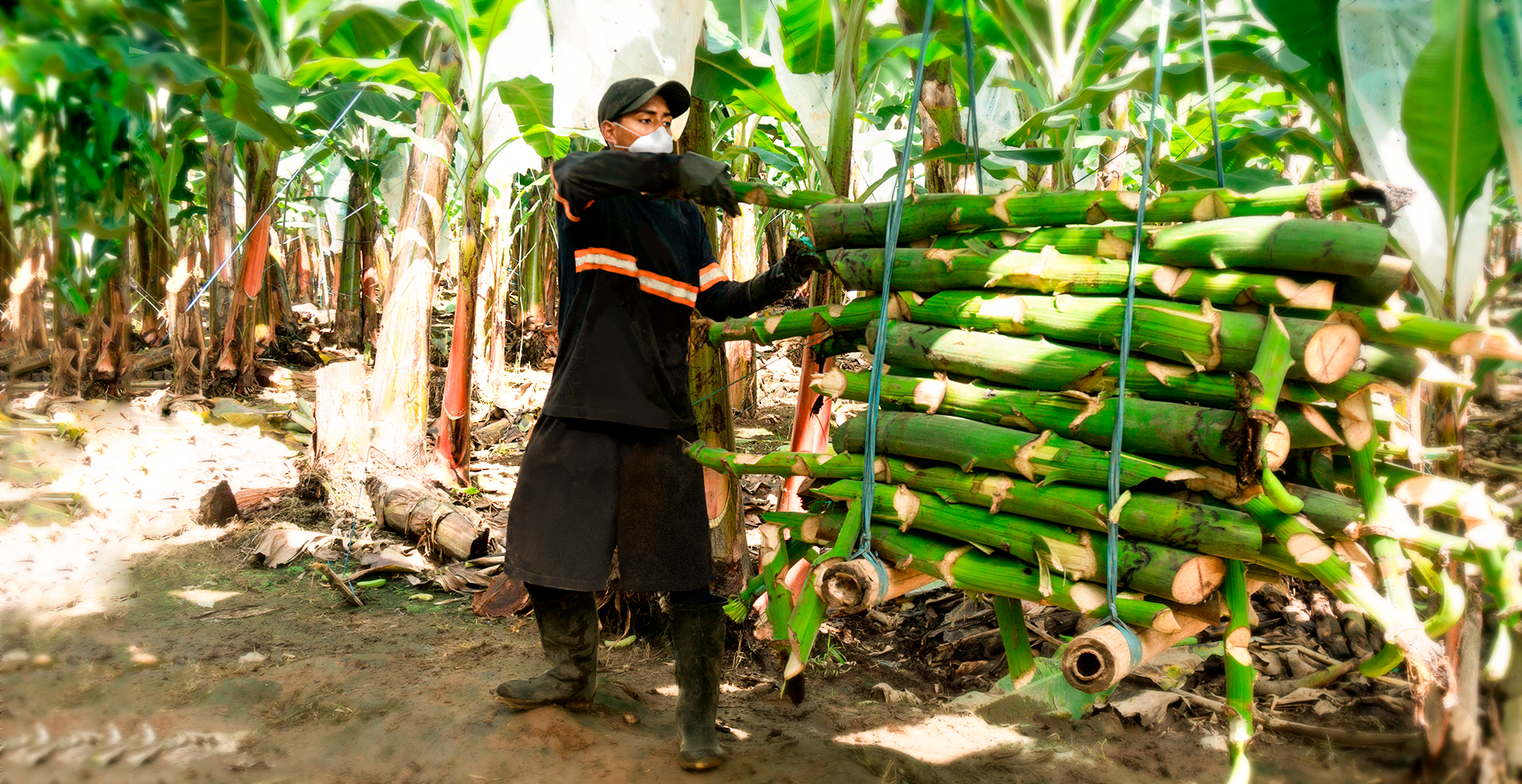CIRCULAR ECONOMY, A MODEL TOWARDS SUSTAINABILITY
2020-08-25Sustainability is an intrinsic principle of Reybanpac. Over the years we have strived to modernize our processes in order to reduce our environmental impact. The responsible use of natural resources, the correct handling of phytosanitary products and the protection of the biodiversity that surrounds our operations are part of our actions. The importance of having a sustainable development plan transcends the search for business continuity, to direct ourselves to the preservation and care of the planet that we will inherit to the next generations. It is a matter of conscience.
The industrial sector at a global level is considering more and more seriously new models that allow it to improve in terms of sustainability. One of these is the circular economy.
The circular economy is a resource use system that seeks to break with the linear model, in which materials are discarded after use or consumption. Instead, the circular economy proposes an economic and productive model that allows the saving of resources through a circular life cycle where they can be reused or recycled. In this way, a lower environmental impact is generated.
Reybanpac is also working on incorporating the circular economy into its management model. One of the most important resources in our sector is the fruit itself. The market demands certain specifications and quality standards for bananas to be suitable for export and commercialization. What happens then with the bananas in the bunch that do not meet the physical characteristics required by the market? Part of this is provided by Reybanpac to other companies as raw material for the production of products for human consumption such as puree, compotes and dehydrated bananas. The rest of the banana rejection is used as livestock feed by one of the companies in our group that is dedicated to the production of dairy products. In this way, it re-enters a new production system that provides families with products rich in protein and calcium, such as milk, yogurt and cheese.
The rachis, or called by some simply as the stems of banana bunches, become a resource that contributes to integrated soil management. 100% of our rachis return to the plantations and serve as organic matter content that contributes to the health and nutrition of the crops.
Regarding the management of plastic waste, Reybanpac complies with the environmental regulations of Ecuador. These plastics are delivered to recycling companies authorized by the State, who are responsible for converting them into raw material. However, at Reybanpac we recognize that there is an opportunity there and we are working on a plan to close the circle. To this end, we are in the process of identifying new industrialization alternatives and strategic allies that allow us to transform this raw material into various products that are required for our own operation. This certainly contributes to reducing our environmental impact, since it makes better use of non-biodegradable resources, reincorporating them into the process and giving them a new useful life.
Thus, in Reybanpac we have set ourselves to advance with the certification of the carbon footprint. It is also our commitment to achieve significant savings in water consumption through investments in sophisticated irrigation equipment and improvements in packaging processes. We move into the future with a sustainable business model.
